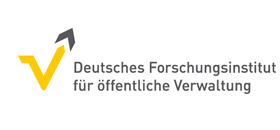Refine
Year of publication
Document Type
- Article (1358) (remove)
Is part of the Bibliography
- no (1358)
Keywords
- Abgeordneter (20)
- Diäten (15)
- Deutschland (14)
- Parteienfinanzierung (12)
- DSGVO (9)
- Deutschland / Bundestag (9)
- Digitalisierung (9)
- Demokratie (7)
- Europäische Union (7)
- Europäische Union / Parlament (7)
Institute
- Lehrstuhl für Öffentliches Recht, Finanz- und Steuerrecht (Univ.-Prof. Dr. Joachim Wieland) (120)
- Lehrstuhl für Öffentliches Recht, insbesondere Europarecht und Völkerrecht (Univ.-Prof. Dr. Wolfgang Weiß) (105)
- Lehrstuhl für Verwaltungswissenschaft, Staatsrecht, Verwaltungsrecht und Europarecht (Univ.-Prof. Dr. Mario Martini) (92)
- Lehrstuhl für Öffentliches Recht, insbesondere deutsches und europäisches Verwaltungsrecht (Univ.-Prof. Dr. Ulrich Stelkens) (88)
- Lehrstuhl für Sozialrecht und Verwaltungswissenschaft (Univ.-Prof. Dr. Constanze Janda) (71)
- Lehrstuhl für Öffentliches Recht, Staatslehre und Rechtsvergleichung (Univ.-Prof. Dr. Dr. h.c. Karl-Peter Sommermann) (69)
- Lehrstuhl für vergleichende Verwaltungswissenschaft und Policy-Analyse (Univ.-Prof. Dr. Michael Bauer) (67)
- Lehrstuhl für Politikwissenschaft (Univ.-Prof. Dr. Stephan Grohs) (52)
- Lehrstuhl für Volkswirtschaftslehre, insbesondere Wirtschafts- und Verkehrspolitik (Univ.-Prof. Dr. Dr. h.c. Andreas Knorr) (44)
- Lehrstuhl für Hochschul- und Wissenschaftsmanagement (Univ.-Prof. Dr. Michael Hölscher) (37)
Hat die Einverdienstehe ausgedient? – Eine Bezugsgröße des Alimentationsprinzips auf dem Prüfstand
(2023)
Die Einverdienstehe bildet bis heute die Bezugsgröße, an der sich die Alimentation der Beamtinnen und Beamten sowie ihrer Familien orientiert. Basierend auf einer Umfrage
des Jahres 2022 untersucht der Beitrag die Haushaltsstruktur und Erwerbssituation der Beamtinnen und Beamten in den unteren Besoldungsgruppen. „Klassische“ Einverdienst-ehen im Sinne des Alimentationsprinzips finden sich in der weit überwiegenden Mehrheit
der Fälle nicht. Folglich scheint es angezeigt, die Alimentation im Zusammenhang mit der Besoldung von Beamtenfamilien auf Basis der aktuellen Befunde neu auszurichten.
Die Urteile des Bundesverfassungsgerichts zur Familienalimentation aus dem Jahr 2020 haben bei verschiedenen Bundesländern Anpassungsreaktionen ihrer Besoldungsordnungen ausgelöst. Diese werden im Beitrag auf ihre Zielkonformität mit den konservativ ausgelegten verfassungsrechtlichen Vorgaben hin untersucht. Da die Familienzuschläge allerdings inzwischen auch Größenordnungen erreicht haben, nach denen sie bei vier Kindern bis zu 100% der niedrigsten Grundbezüge ausmachen, und damit auch in einen Konflikt mit dem Leistungsprinzip geraten, reflektiert der Beitrag auch weitreichende Möglichkeiten einer Weiterentwicklung des Alimentationsprinzips im Rahmen der hergebrachten Grundsätze des Berufsbeamtentums.
Der Winter 2022/23 wird womöglich als Zeitenwende Künstlicher Intelligenz in die Annalen eingehen. Wie einst die Dampfmaschie oder die Eisenbahn als Basisinnovationen die Produktion von Gütern bzw. das Verkehrswese grundlegend umwälzten, revolutionieren nunmehr generative Anwendungen, etwa ChatGPT oder der Bildgenerator Midjourney, die Nutzung intelligenter Systeme.
Der Winter 2022/23 wird womöglich als Zeitenwende Künstlicher Intelligenz in die Annalen eingehen. Wie einst die Dampfmaschine oder die Eisenbahn als Basisinnovationen die Produktion von Gütern bzw. das Verkehrswesen grundlegend umwälzten, revolutionieren nunmehr generative Anwendungen, etwa ChatGPT oder der Bildgenerator Midjourney, die Nutzung intelligenter Systeme.

